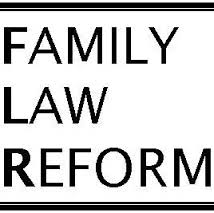How you hurt your kids when you don’t share custody – Kidspot
Ever been guilty of blocking your ex’s parenting time with your children?
While it might seem completely justified, it’s important to be aware of the potential ramifications on the long-term health and well being of your child.
When James* and Gemma* broke up, the split was messy. He was working long hours, she was exhausted from looking after the kids, their relationship was a mess and she didn’t feel he was much of a dad to them. While they agreed it was over for them, James didn’t realize that pretty soon, it was also game over for a regular relationship with his kids: a four-year-old son, and two-year-old daughter.
He said, she said
“She really hated me by the time we split. Maybe I wasn’t around as much as I could have been, but I was working hard for all of us. I can’t say I like her any more than she likes me, and what she’s done to keep me and the kids apart, well, I’ll never forgive her for using my kids to get back at me.”
Gemma has a slightly different version of events. “He was never home – he’d work long hours, which was good for our bank balance, but then he’d be stressed and short tempered, and he drank too much. It’s true I don’t like him, but with the kids,  I feel like he was never there before, so why now? And I don’t trust him to have them on his own because I think he drinks too much, and he gets frustrated with them for being kids a lot more than I do. It worries me, since I won’t be there to see what is happening.”
I feel like he was never there before, so why now? And I don’t trust him to have them on his own because I think he drinks too much, and he gets frustrated with them for being kids a lot more than I do. It worries me, since I won’t be there to see what is happening.”
Their story isn’t unusual, and it’s one of a hundred different variations on why parents feel justified in blocking their ex-partners access to their kids. But at the end of the day, the experts agree that the only thing that matters is the kids – and what they need most is to love and spend time with both their parents, without interference from either side.
Facts and figures
When it comes to having restricted time from their other parent, Jean-Marcel Malliaté, accredited family dispute resolution practitioner at InterMEDIATE Dispute Management, says kids experience feelings of grief and loss. “They are often frightened to talk about the absent parent, and worried about the absent parent’s welfare. Some may be resentful and angry, believing what they are told, blaming the other parent for the break-up of the family and the subsequent stresses, such as poverty,” Jean-Marcel says.
Many young children feel it is their fault, that if they had been good or more lovable, that the parent would not have left them. Let that sit in your mind for a moment and see if you still think sorting out equitable access is not necessary – it’s not your ex that’s being hurt the most, but your child’s mental well being and self-esteem that bears the brunt.
If the emotive doesn’t work for you, perhaps these research findings will. Children of separated families rife with parental conflict, distress and multiple changes in family structure, have around twice the probability of experiencing poor outcomes in the long-term than those from intact families, says Naomi Holtring, nationally accredited mediator, also from InterMEDIATE Dispute Management.
“These outcomes include greater levels of poverty, lower educational attainment, poorer health, higher levels of behavioral problems, depressive symptoms, and higher levels of smoking, drinking, drug abuse and teenage pregnancy,”
Naomi says. In short, maintaining a civil relationship and allowing as much access as feasible can make a substantial positive difference to their future.
Getting Help
No one needs to feel a failure for not being able to sort these challenges out alone, nor is there value in beating yourself up about what has already transpired. What’s useful is to make a commitment to seek out whatever help you need to make positive changes for your kids. Naomi and Jean-Marcel recommend family dispute resolution (FDR) with accredited family dispute resolution practitioners, as it’s child-focused and does not pitch parents in a battle, like litigation does. Naomi explains that parents are acknowledged and supported throughout the process, and the best FDR process is a co-model, which has two professional practitioners (one male and one female) in a gender-balanced process. “Neither parent will feel the mediators are biased against them due to gender, which does help the process,” she says.
This is a tricky topic to tackle, a tough situation for both parties, and there’s really no easy path through it. You are often dealing with hurt feelings, white hot anger, or loss of trust; all the while trying to work out what is best for your babies. But when you weigh up the long-term benefit to your kids, an outsider’s professional and unbiased perspective may make the difference and give your kids the best possible outcome from your separation.
NOTE: Relationships involving a history of violence are outside the scope of this story, nor are we talking about parents who are absent by choice.













LikeLiked by 2 people
LikeLiked by 1 person